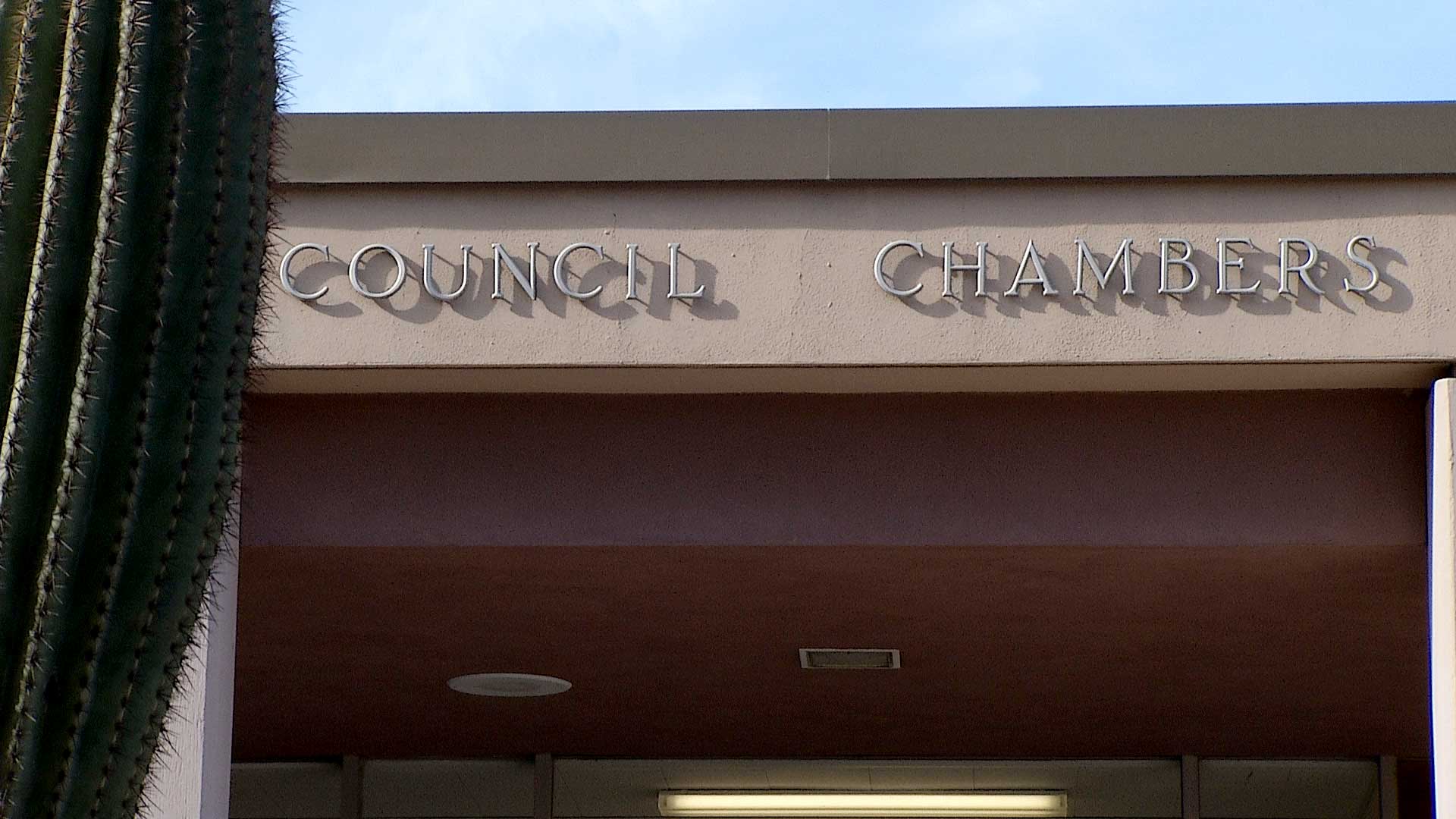 City of Tucson's council chambers in downtown.
City of Tucson's council chambers in downtown.
The Tucson City Council is drafting an ordinance that could ban homeless encampments in city washes, just as a case in front of the U.S. Supreme Court is tackling how aggressive cities can be towards removing the unhoused.
A Feb. 21 memo outlines the council’s primary concerns with camping in these areas are safety and environmental impact.
According to the memo, flash flooding can pose risks for those living in washes, as well as first responders who are called to help. Human waste and drug debris can also impact “the delicate balance of riparian ecosystems,” the memo said.
But in April, the Supreme Court will hear the case of Grants Pass, Oregon v. Johnson, a case that’s examining whether a small town in Oregon violated the Cruel and Unusual Punishment Clause for its anti-camping laws.
Councilman Paul Cunningham said the city needs to exercise caution.
“Before we take a big leap of faith that we really, really need this, I think we want the city attorney to at least take a look at this Supreme Court case,” he said.
City Attorney Mike Rankin said the city is monitoring the case.
“We've always been careful to structure our ordinances with one fundamental principle in mind: that homelessness is not a crime, that our ordinances are not going to criminalize someone for being homeless,” he said.
According to Rankin, the city currently refers to a combination of state laws prohibiting trespassing and local ordinances regarding public property to deal with encampments.
Rankin said at Wednesday's study session that he thinks a new ordinance would clear up confusion.
“This will give us a much more clear authority under the code to move forward,” he said.
The city council voted unanimously to draft the ordinance yesterday.

By submitting your comments, you hereby give AZPM the right to post your comments and potentially use them in any other form of media operated by this institution.